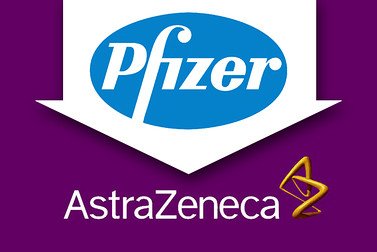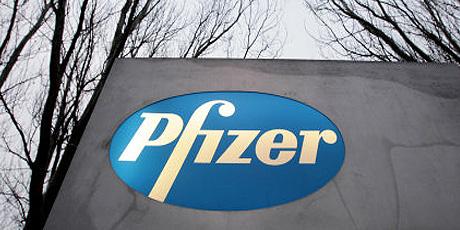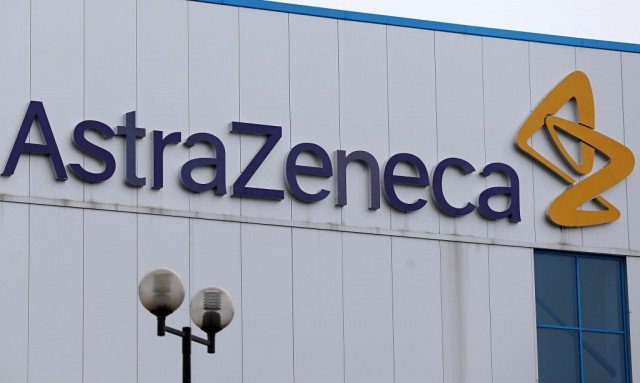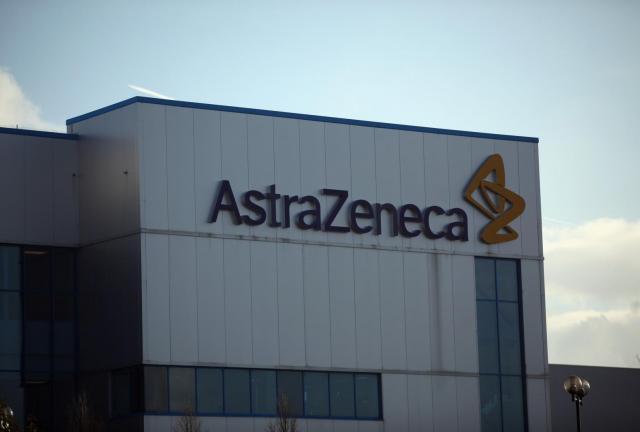Home Tags Posts tagged with "AstraZeneca"
AstraZeneca
AstraZeneca has rejected an improved “final” takeover offer from Pfizer.
US pharmaceutical giant Pfizer had made a new offer of £55 ($88) per share, valuing AstraZeneca at about £69 billion ($105 billion).
However, AstraZeneca says the new proposal “undervalues the company and its attractive prospects”.
Pfizer’s pursuit has been under scrutiny because of fears it would hamper AstraZeneca’s drug research and cut jobs.

Pfizer had made a new offer of £55 per share, valuing AstraZeneca at about £69 billion
Pfizer planned to create the world’s largest drug company, with its headquarters in New York, but based in the UK for tax purposes.
In a strategy known as “tax inversion” Pfizer could pay the UK corporate tax rate of 20%, rather than the 35% rate applied in the US, if it bought AstraZeneca.
That plan has proved controversial with unions and politicians, with AstraZeneca employing 6,700 people in the UK.
AstraZeneca chairman Leif Johansson said Pfizer’s pursuit had been “fundamentally driven” by the corporate financial benefits.
“Pfizer has failed to make a compelling strategic, business or value case,” he added.
Of the two companies’ research and development workforce, Pfizer has said it will retain at least 20% in the UK for at least five years. It has also pledged to base its European HQ in Britain.
AstraZeneca’s shares fell over 13% in early trading after its rejection of the offer.
In its new offer statement, Pfizer chief executive Ian Read said: “We stand by our unprecedented commitments to the UK government.”
Pfizer had said that its improved offer of £55 per share was “final” and would not be increased.
AstraZeneca shareholders were being offered £24.76 in cash and 1.747 shares in the new firm – worth a combined £55 – for each share currently they hold.
Pfizer had also promised not to mount a hostile takeover – a direct approach to shareholders of AstraZeneca without the involvement of its board.
Leif Johansson said that he had made clear to Pfizer that his board could only recommend a bid that was at least 10% above an offer of £53.50 made by Pfizer on Friday.
[youtube wowIpQC2xGo 650]
Pfizer’s bid for AstraZeneca is being questioned by senators and Maryland and Delaware governors.
Maryland and Delaware governors have written to Pfizer’s boss saying they are “very concerned” about the deal and the possibilities of job losses in their states.
Meanwhile senators Carl Levin and Roy Wyden are looking to close the tax loophole that Pfizer plans to use.
One of the attractions of the deal to Pfizer is that it could significantly lower the company’s tax bill.

Pfizer’s bid for AstraZeneca is being questioned by senators and Maryland and Delaware governors
In a strategy known as “tax inversion” Pfizer could pay the UK corporate tax rate of 20%, rather than the 35% rate applied in the US, if it bought AstraZeneca.
Senator Carl Levin said in a statement: “I’ve long been concerned about inversions – companies moving offshore on paper, for tax purposes, while the management and operations remain in the United States.
“It’s become increasingly clear that a loophole in our tax laws allowing these inversions threatens to devastate federal tax receipts.
“We have to close that loophole. I am talking to my colleagues about legislation to close the loophole, which I intend to introduce soon.”
Meanwhile governors Martin O’Malley and Jack Markell are concerned about job losses.
AstraZeneca employs approximately 3,100 people in Maryland, and has around 2,600 staff in Delaware.
The governors are concerned about reports that Pfizer has given assurances to the UK government that there will be no British job losses at AstraZeneca.
They say they have had no similar assurances about AstraZeneca facilities in their states.
“Our concern is exacerbated by Pfizer’s history of closing US research facilities, including sites in Michigan and Illinois, after closing on previous corporate transactions,” Martin O’Malley and Jack Markell said in a statement.
Pharmaceutical company AstraZeneca has rejected the new takeover offer from Pfizer.
Pfizer had earlier raised the price it was offering for AstraZeneca to $80 a share, valuing the firm at $100 billion.
However, the UK company said the new terms offered were, “inadequate, substantially undervalue AstraZeneca and are not a basis on which to engage with Pfizer”.
If the deal were to go through it would be the biggest takeover of AstraZeneca by a foreign firm.
AstraZeneca employs more than 51,000 staff worldwide, with 6,700 in the UK. Pfizer – whose drugs include Viagra – has a global workforce of more than 70,000, with 2,500 in the UK.

AstraZeneca has rejected the new takeover offer from Pfizer
Announcing Pfizer’s new offer, Pfizer chairman and chief executive Ian Read said the company believed “that there is a highly compelling strategic, business and financial rationale for combining our businesses, with significant benefits for shareholders and stakeholders of both companies”.
“We believe our proposal is responsive to the views of AstraZeneca shareholders and provides a sound basis upon which to arrive at recommendable terms for the combination of our two companies.”
Pfizer also sent a letter to UK’s PM David Cameron to try to address concerns over the bid.
On Wednesday, four scientific bodies raised concerns about possible UK lab closures following a Pfizer deal, and a committee of lawmakers is considering an inquiry into the issue.
Pfizer told PM David Cameron it would go ahead with AstraZeneca’s planned research and development (R&D) base in Cambridge, and retain its Macclesfield manufacturing facilities.
The US company also pledged that if the deal went ahead, 20% of the combined company’s R&D workforce would be based in the UK.
Pfizer said its commitments would be valid for five years, unless circumstances changed significantly.
The latest offer from Pfizer is a mixture of cash and shares equivalent to $80 per AstraZeneca share. If the deal goes through, Pfizer also wants to establish its corporate and tax residence in the UK, as well as its European headquarters.
AstraZeneca’s board said the offer was too low, and that it believed a major driver for Pfizer’s takeover was the move to establish a tax residence in the UK by changing its company structure.
“The large proportion of the consideration payable in Pfizer shares and the tax-driven inversion structure remain unchanged. Accordingly, the board has rejected the proposal,” AstraZeneca said.
Leif Johansson, chairman of AstraZeneca, added that the company’s product “pipeline” of new drugs was “rapidly progressing”.
“Pfizer’s proposal would dramatically dilute AstraZeneca shareholders’ exposure to our unique pipeline and would create risks around its delivery,” Leif Johansson said.
[youtube 8J4WP-XzrMY 650]
AstraZeneca’s shares rose by more than 14% on Monday, after pharmaceutical giant Pfizer confirmed its interest in a takeover bid.
Pfizer said it had contacted AstraZeneca over a multi-billion dollar bid for the UK-based drug maker.
If successful, the deal would be the biggest ever takeover of a UK firm by a foreign company.
Pfizer said it approached AstraZeneca on Saturday, after an initial offer in January, worth $95 billion, was rebuffed.

AstraZeneca’s shares rose by more than 14 percent on Monday, after pharmaceutical giant Pfizer confirmed its interest in a takeover bid (photo Getty Images)
AstraZeneca said the original offer “significantly undervalued” the firm, which employs more than 51,000 staff.
However, AstraZeneca said it was “confident” its strategy would create “significant value” for shareholders on its own.
“The Board remains confident in the ongoing execution of AstraZeneca’s strategy as an independent company,” it added.
Pfizer said in a statement that AstraZeneca’s refusal to engage meant it was currently “considering its options”.
AstraZeneca manufactures drugs in 16 countries focusing on treatments for diabetes, cancer and asthma as well as antibiotics.
Recently the company posted a drop in first quarter profits – and laid off thousands of staff in an effort to reduce its costs to compensate for a fall in sales – due to patent losses on blockbuster medicines.
In April, AstraZeneca posted a drop in first quarter profits after its earnings were by hit by patents expiring on some of its older medicines.
Pfizer said the deal was “a highly compelling opportunity” for AstraZeneca’s shareholders.
It said if the takeover went through, the combined company would have management in both the US and the UK, but would list its shares on the New York Stock Exchange.
[youtube 9RveQvNtKeM 650]
Pfizer has confirmed it has contacted AstraZeneca over a possible multi-billion dollar takeover.
The pharmaceutical said it made an initial approach in January, but after “limited high-level discussions” AstraZeneca discontinued the talks on January 14.
However, it said recent market developments had prompted it to approach AstraZeneca for a second time.

Pfizer has confirmed it has contacted AstraZeneca over a possible multi-billion dollar takeover
“AstraZeneca again declined to engage. Pfizer is currently considering its options,” Pfizer said in a statement.
Pfizer said its initial offer in January was a combination of cash and shares worth $75 per AstraZeneca share, worth $94 billion in total.
At the time, it represented a 30% premium to AstraZeneca’s share price, although AstraZeneca’s share price has since increased and on Monday morning it jumped nearly 15% .
Pfizer said the deal was “a highly compelling opportunity” for AstraZeneca’s shareholders.
It said if the takeover went through, the combined firm would have management in both the US and the UK, but would list its shares on the New York Stock Exchange.
“We have great respect for AstraZeneca and its proud heritage,” said Pfizer chairman and chief executive Ian Read.
Pfizer said it would only make a firm offer if AstraZeneca directors voted unanimously in favor of the deal.
“The strategic, business and financial rationale for a transaction is compelling,” it added.
Buying AstraZeneca would give Pfizer, which makes Viagra among other drugs, access to a number of cancer and diabetes drugs.
Pharmaceutical company Eli Lilly has said it is “deeply concerned” by claims that it bribed Chinese doctors to prescribe its drugs.
Chinese paper 21st Century Business Herald cited a former staff, identified by a pseudonym, as saying Eli Lilly paid out 30 million yuan ($4.9 million).
The claims come at a time when China is investigating some drugs firms over similar bribery allegations.
Eli Lilly said it had launched an internal probe last year after a former manager made similar allegations against it.
“At the time of the allegations, we did an exhaustive investigation to search for any evidence of kickbacks,” the company said in a statement.
“Although we have not been able to verify these allegations, we take them seriously and we are continuing our investigation.”
The drugmaker said it interviewed employees, monitored emails and audited expense reports as part of its internal probe.

Eli Lilly has said it is “deeply concerned” by claims that it bribed Chinese doctors to prescribe its drugs
However, it said it had not employed any sales managers by the name of Wang Wei, who was mentioned in the 21st Century Business Herald report.
Eli Lilly is the latest foreign drugmaker to be engulfed by such claims in China.
Earlier this week, a British risk consultant, Peter Humphrey, was formally arrested by Chinese authorities amid a continuing probe into pharmaceutical companies.
One of the companies being probed, GlaxoSmithKline (GSK), is reportedly a former client of Peter Humphrey’s firm, ChinaWhys.
Chinese authorities have accused GSK of directing up to $500 million through travel agencies to facilitate bribes to doctors and officials.
GSK has said that some senior executives in its China office appeared to have broken the law and several GSK employees have also been detained over the last few weeks.
In July, Chinese police had visited the Shanghai office of AstraZeneca and took an employee in for questioning.
AstraZeneca, the second largest drugs company in UK, has announced it is buying California-based Pearl Therapeutics in a deal worth up to $1.15 billion.
Privately-owned Pearl specializes in drugs used in the treatment of lung disease and asthma.
AstraZeneca said it will pay $560 million initially, then $450 million subject to drug development milestones being reached.
It could also make sales-related payments of up to $140 million in addition.
The acquisition will give AstraZeneca a foothold in the emerging market for a new class of lung treatments known as LABA/LAMA drugs, administered via an inhaler.

AstraZeneca has announced it is buying California-based Pearl Therapeutics in a deal worth up to $1.15 billion
These drugs are used in the treatment of chronic obstructive pulmonary disease, which affects about 210 million people worldwide.
Anglo-Swedish AstraZeneca, under its new chief executive Pascal Soriot, who took over in October 2012, has identified respiratory treatments as one of its core businesses.
AstraZeneca has been suffering falling profits and sales as several of its blockbuster drugs, such as the anti-psychotic Seroquel and anti-cholesterol Crestor, have lost their patent protection, allowing cheaper generic drugs to enter the market.
It was also forced to write off $140 million relating to a failed arthritis drug.
AstraZeneca is simplifying its drug development programme, cutting 5,000 jobs by 2016, and is looking to expand through acquisitions instead.
[youtube 3x8eW7_tK-8]
AstraZeneca today announced that AXANUM, a fixed dose combination of 81 mg low-dose ASA (acetylsalicylic acid) and 20 mg esomeprazole (Nexium), has received positive agreement for approval in 23 European Union member countries and in Norway.
[googlead tip=”lista_mare” aliniat=”stanga”] AXANUM once-daily pill is a combination of low-dose ASA 81mg and esomeprazole 20mg.
Esomeprazole, which is the active ingredient in the proton pump inhibitor (PPI) Nexium, is approved for the risk reduction of peptic ulcer development in low-dose ASA patients and is the only PPI approved for the risk reduction of re-bleeding in peptic ulcer bleed patients.

Nexium
AXANUM is indicated for prevention of cardiovascular (CV) events such as heart attack or stroke, in high-risk CV patients in need of daily low-dose ASA treatment and who are at risk of gastric ulcers.
Low-dose ASA (commonly known as aspirin) is recommended mainstay therapy for patients with high-risk for cardiovascular events. About one third of these patients are also at increased risk of gastro-duodenal ulcer. Low-dose ASA further increases the risk for gastric ulcers and gastrointestinal bleeding. In fact, the most common reason for stopping low-dose ASA treatment is upper gastrointestinal problems. The consequences of interrupting low-dose ASA treatment can be severe, increasing the risk of a heart attack or stroke as early as eight to 10 days later.
[googlead tip=”vertical_mare” aliniat=”stanga”] AXANUM is the only medicine that ensures every single pill of low-dose ASA comes with built-in protection against gastric ulcers.
That means AXANUM has the potential to provide continuous CV protection in this patient population.
The EU decision took place under the decentralized procedure (DCP), with Germany acting as reference member state. This process is now followed by national approvals and local pricing and reimbursement discussions.
AstraZeneca submitted a Marketing Authorization Application in the EU via the Decentralized Procedure for AXANUM on 30 April 2009. The EU Concerned Member States include: Austria; Belgium, Denmark, Luxemburg, Bulgaria, Cyprus, Czech Republic, Estonia, Germany, Greece, Finland, France, Italy, Lithuania, Latvia, Malta, Netherlands, Poland, Portugal, Romania, Sweden, Slovenia and Norway. The Member States will now work to pursue pricing/reimbursement and national approvals.
In 2010, AstraZeneca has obtained a complete response letter (CRL) from FDA for its new drug application Axanum. [googlead tip=”lista_mare” aliniat=”dreapta”]
Additionally it has also received a CRL for the supplemental new drug application (sNDA) for Nexium (esomeprazole magnesium).
AstraZeneca is currently evaluating the CRLs, and will continue discussions with the FDA to determine next steps with respect to both the AXANUM NDA as well as the NEXIUM sNDA and will respond to the agency’s request for additional information.
AstraZeneca is a global, innovation-driven biopharmaceutical business with a primary focus on the discovery, development and commercialization of prescription medicines for gastrointestinal, cardiovascular, neuroscience, respiratory and inflammation, oncology and infectious disease. AstraZeneca operates in over 100 countries and its innovative medicines are used by millions of patients worldwide.








